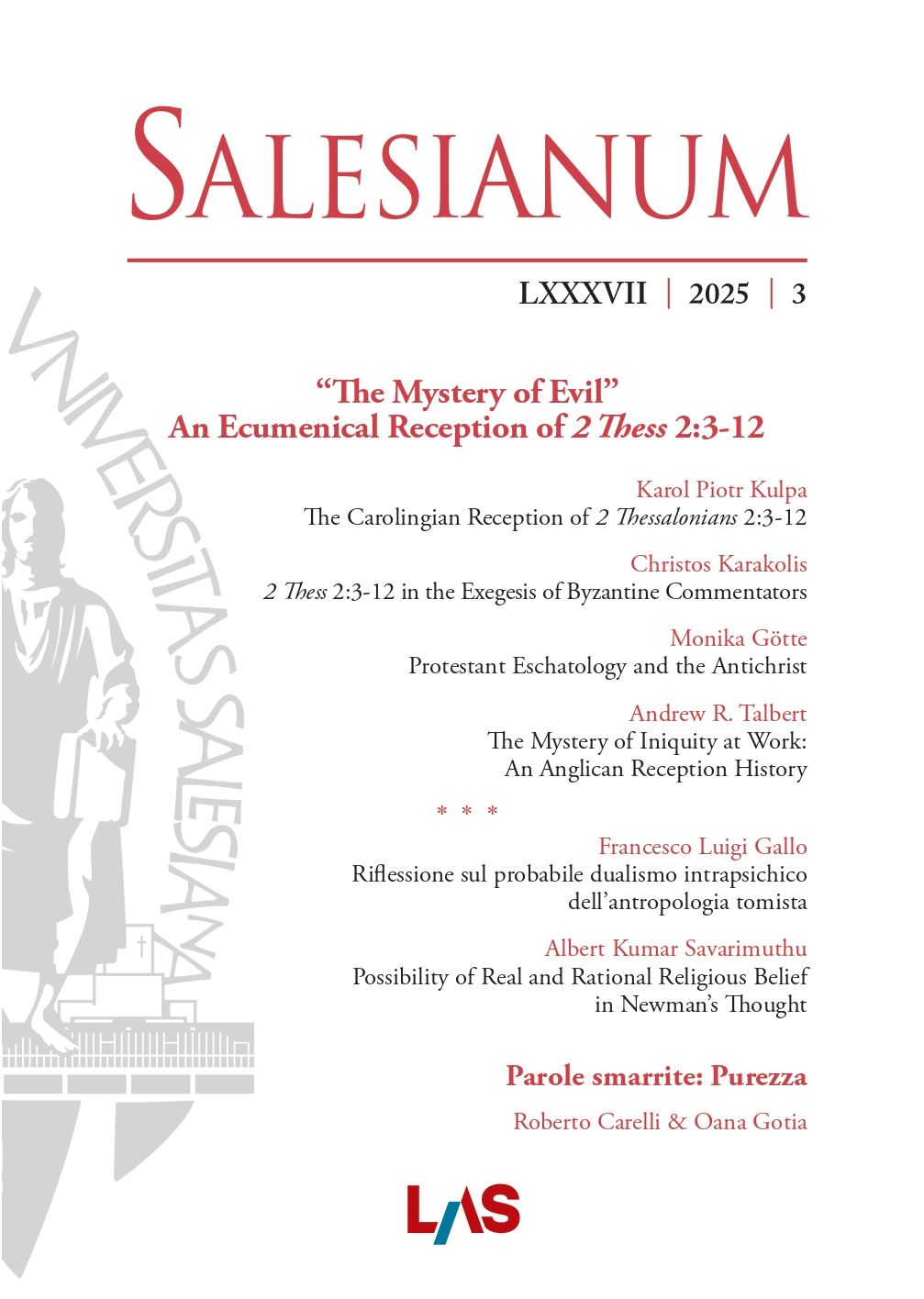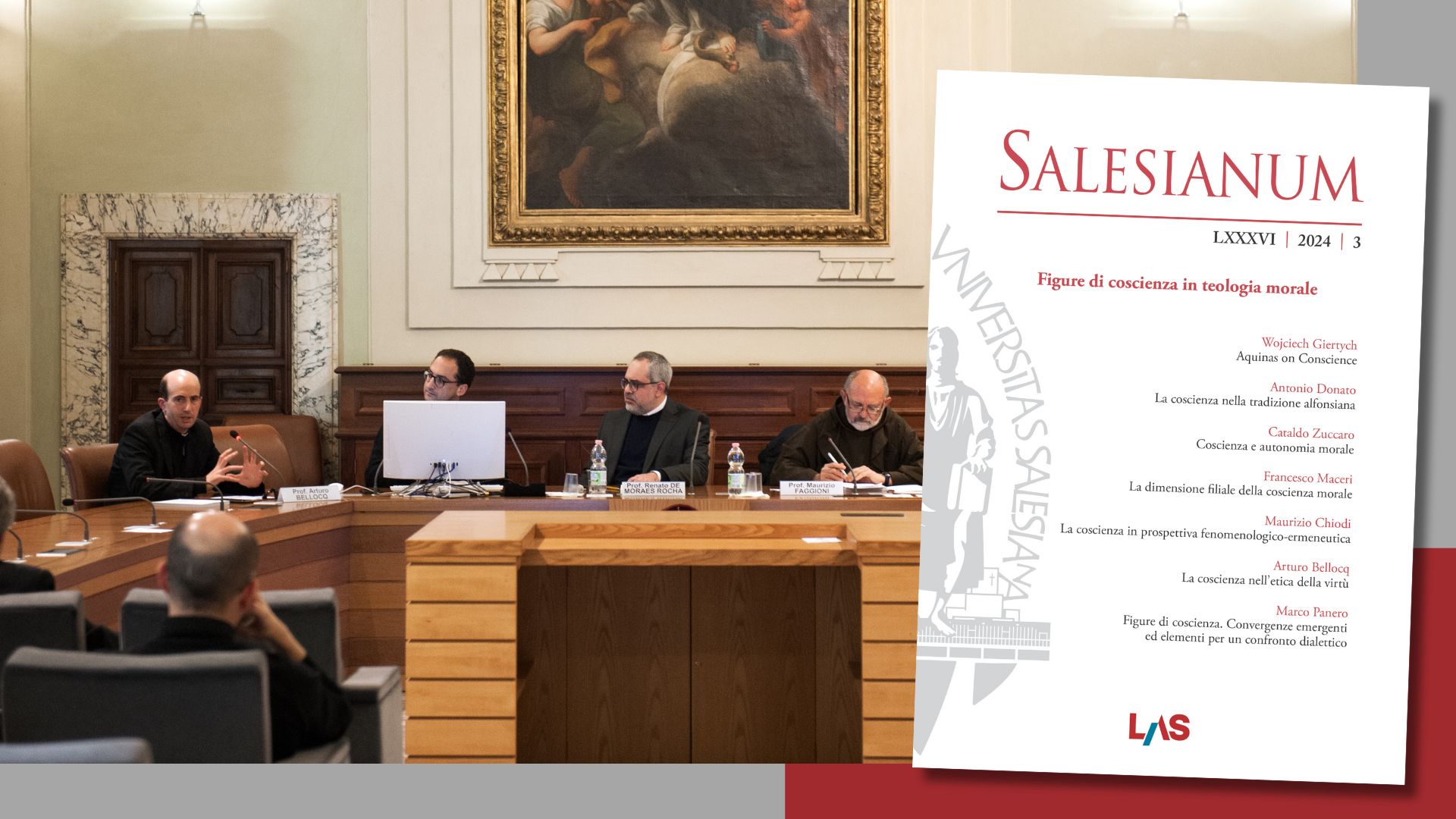Protestant Eschatology and the Antichrist: From Reformation Polemics to Contemporary Societal Responsibility
Salesianum vol. 87 (2025) n. 3, 499-521
Sezione: Studia
Sommario
This article explores the evolving interpretations of the Antichrist within Protestant traditions, with a particular focus on 2 Thessalonians 2:3-12. Beginning with the Reformation, Protestant leaders such as Martin Luther and John Calvin redefined the Antichrist as a critique of the Papacy, embedding apocalyptic themes into Protestant identity and polemics. Over time, diverse millennial frameworks have further shaped understandings of the Antichrist, ranging from a literal future figure to a symbolic representation of systemic evil. This article traces how these theological perspectives influenced cultural narratives, eschatological worldviews, and Church identities.
Parole chiave
Antichrist | Dispensationalism | Eschatology | Reformation | Ethics


